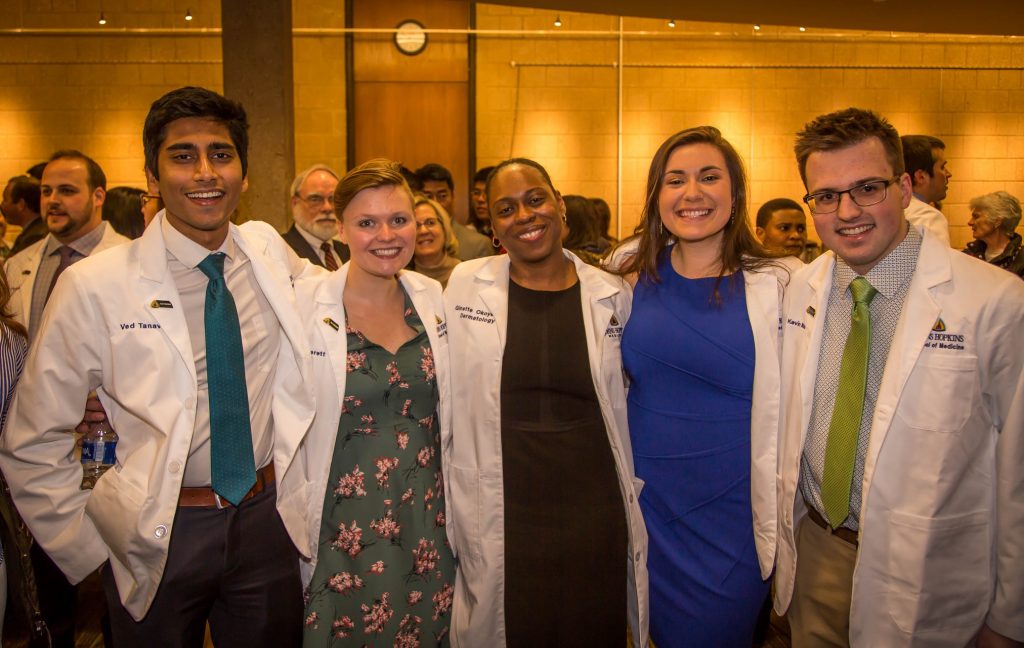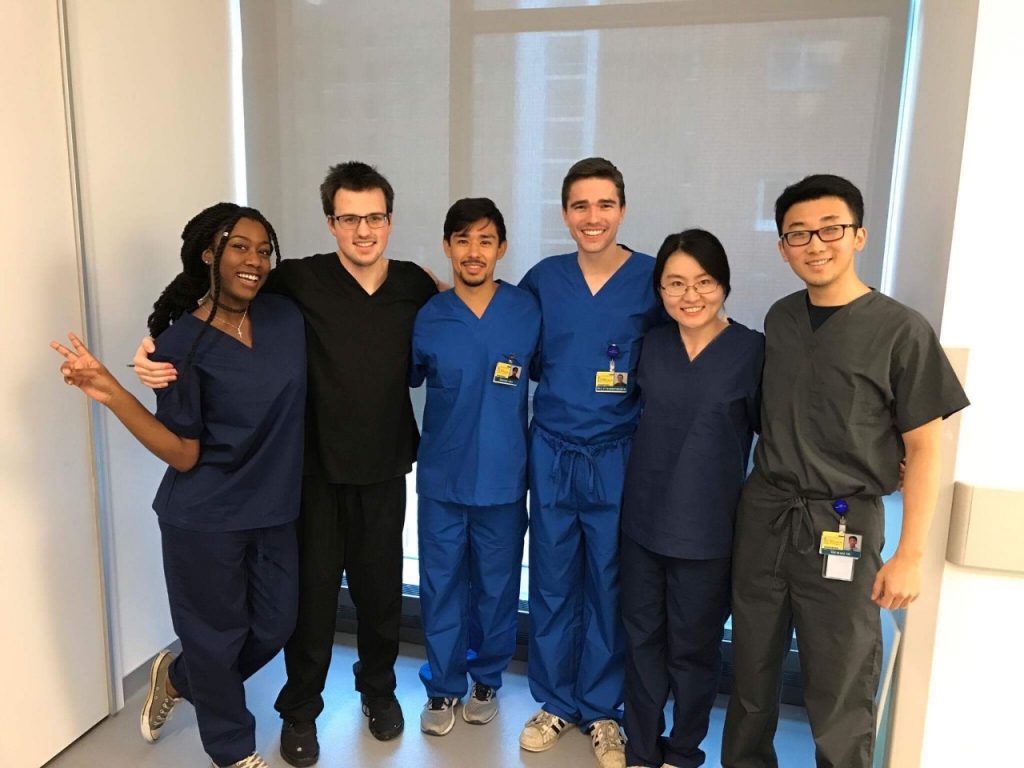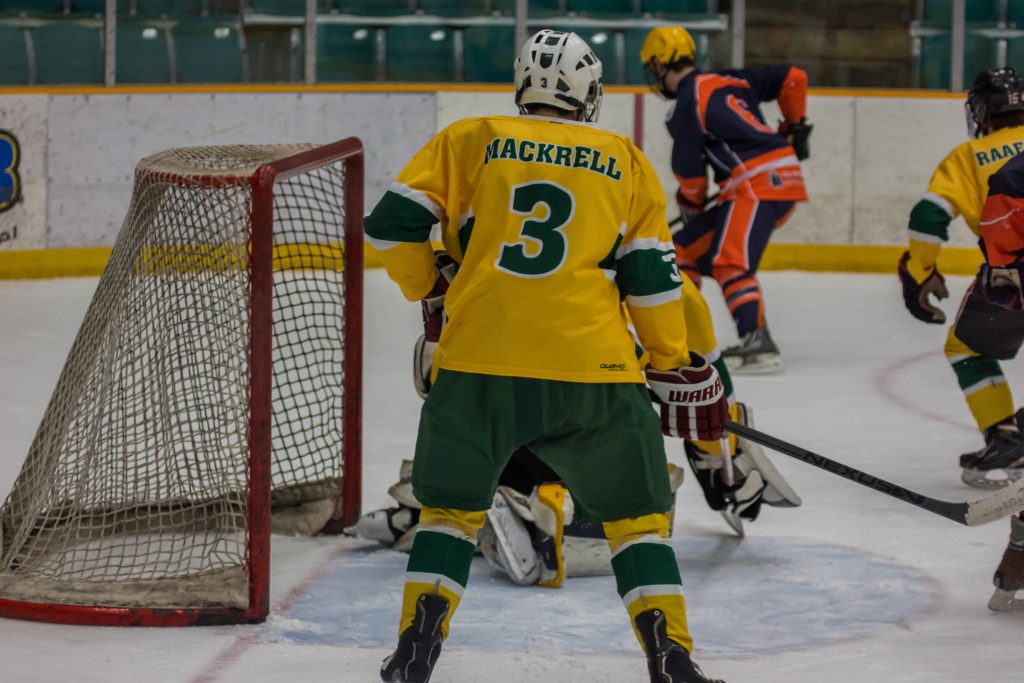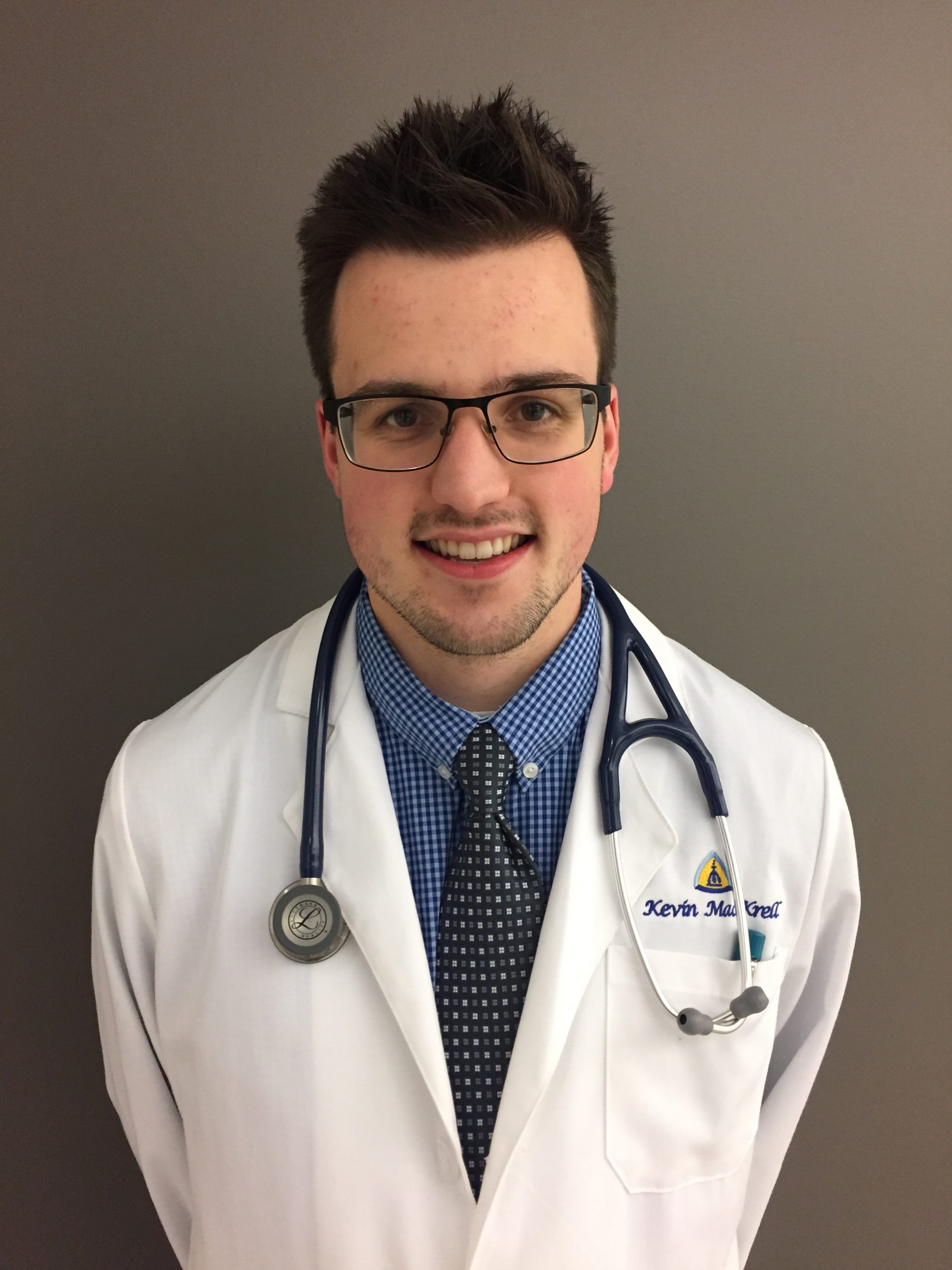Hello, my name is Kevin MacKrell, and I graduated from Clarkson in 2017, with a B.S. in Biomolecular Science. I just recently graduated from Johns Hopkins School of Medicine and this summer I will begin a three-year residency program with the University of Buffalo in Emergency Medicine.
I did not always know that I wanted to be a doctor. But I did know that I was interested in the medical/healthcare field as a whole. As I reflect on how my experience as an undergraduate prepared me for rigorous med-school studies I am grateful for the unique opportunities and foundation I was given at Clarkson University.
Getting into any medical school is difficult and requires both hard work and preparation. Here are my top five reflections on what I did that helped me get accepted to multiple medical schools and ultimately go to Johns Hopkins.
1. Find the Right Undergraduate Environment & Program for You
An undergraduate environment that gives you what you need to thrive is super important. If the school is the right fit for you, it will be much easier to be successful and get heavily involved in the activities you want to, and that will help you get into medical school if that is your desire. Clarkson was the perfect environment for me. Clarkson is a small school, which I loved because I could tell right away that I was going to be more than just a number.
The relationships within the biomolecular science program with professors and students were “close-knit,” accessible, collaborative, and supportive. I am not sure that would happen everywhere. I was encouraged to thrive and had people who worked to help me succeed. My professors cared about me and challenged me.
The campus culture felt unique to me. The students all worked together to succeed. It was not student vs. student, but us vs. the test (or whatever else was thrown our way).
Entering Clarkson as a freshman, the academic paths I had to choose from were broad. Plus, the field of health care is vast and there are lots of sectors to dive into.
At the time, all I knew for sure was that I loved both biology and chemistry in high school and had a strong interest in learning more about biochemistry.
Prior to starting college, I had the opportunity to talk to a few doctors before declaring a major. Their advice was to focus on biochemistry, as it plays a very strong role in modern medicine. They said if they could do it all over again, they would choose to major in biochemistry.
With this in mind, I decided to major in Biomolecular Science for my undergraduate studies. Biomolecular Science at Clarkson is more or less the same as biochemistry, as it combines both chemistry and biology. I took courses like Cellular and Molecular Biology, Genetics, Biochemistry, Structure and Bonding, Organic Chemistry, and Inheritance, Evolution and Diversity. The Biomolecular Science curriculum allows room and flexibility so I was able to choose courses in topics I was especially interested in and fit in with my career plans.
At Clarkson, I found the right school and the right academic program with great opportunities, accessible and supportive faculty, and a strong science curriculum that reinforced my desire to pursue medicine. I also developed the foundation and habits required to be successful in medical school.

2. Get Lots of Hands-on Experience
As Biomolecular Science undergraduates we are encouraged to be hands-on, in the research lab and other program-related activities so I shadowed physicians, volunteered as an EMT, and volunteered in my local hospital’s Emergency Department.
Our professors encouraged us to work with them, whether in research or teaching. One major experience outside the formal curriculum I participated in was being a teaching assistant (TA). I started teaching my sophomore year as a Freshman Chemistry TA and continued until I graduated. I was also a TA for Biology II and the cadaver lab in Anatomy and Physiology.
I loved teaching and it was a great opportunity to learn how to explain new concepts to someone in a way that they can understand. The skills I learned from being a TA have been very useful in my work today when explaining to patients their disease and treatment plan.
A unique offering of Clarkson is that they are one of only a few undergraduate schools to have a cadaver lab for Anatomy and Physiology courses. Many of my medical school peers did not have the opportunity to take gross anatomy with cadavers in their undergraduate education. Taking the course and then being a TA was excellent preparation.
Thanks to these hands-on experiences, I was perfectly on track with my peers at medical school, including those coming from prestigious medical institutions and Ivy League schools. Due to the amazing science prep that the Biomolecular Science program provided, I even felt ahead of the game.
All of these experiences helped confirm that I wanted to enter the medical field and become a physician because I knew I would be able to combine my love of science, medicine, and teaching to help make a difference in people’s lives.
3. Prep For the Graduate Admissions Process
In full disclosure, applying to graduate schools is a tiring, long and stressful process. It starts with studying for the MCAT exam, an arduous 7.5-hour test. After that, the AMCAS application (think common app but for medical schools) and school-specific secondary applications.

Then come interviews. The Med-School interview is a full-day affair. You take tours, talk with current students, have an interview or two with faculty members, and then maybe more interviews with fourth-year medical students.
Take advantage of all the resources you have at your undergraduate institution to prepare. I was so lucky to have such an outstanding Career Center. They were extremely helpful in preparing me for the interviews. I went through a mock interview with questions tailored specifically to medical school. Some of those questions I heard again in the actual interviews and I was ready.
My pre-med advisor was also an important resource. I was able to work with them almost every step of the way. They helped me put together my application along with the letter of recommendation package that Clarkson sends to AMCAS.
4. Be Involved, but More Importantly, Be Passionate!
Don’t worry about what you think your resume needs to look like or how many extracurriculars you’ve listed. Instead, get involved in the activities you actually enjoy. Doing a bunch of activities you don’t like with little effort just to check off a box will ultimately not be helpful in the application/interview process. People will see right through that.
Being heavily involved in a few activities of interest will be more rewarding for you, too, helping you grow more as a person and become a more interesting prospective candidate in whatever field you choose to pursue. Additionally, you will also learn more from these experiences because you are passionate about them. You will be able to take those lessons learned into future endeavors and be successful (not to mention being able to answer some interview questions, ha-ha!).
When you are passionate about what you are learning, participating in, or organizing, you gain so much more.

At Clarkson, my relationships were collaborative from day one. Everyone was very friendly and wanted to help each other. I had many opportunities to pursue including teaching, research, EMS, being an RA, and I did all of those while playing club hockey. These activities were all great, and I enjoyed participating in them. I made many great friendships through classes and activities.
These relationships are what I miss the most, founded out of a passion for the organization or class. I like to think that my passion really came through in my interviews, and that helped with getting accepted into my programs of choice.
5. Know Your Answer to “Why Medicine?”
One of the things you will be asked most is the question, “Why medicine?” This answer is so difficult to know sometimes. It helps to keep asking yourself this question all the time, at every new learning opportunity keep it in the back of your mind.
My biggest advice to a current undergraduate student or high schooler thinking about medicine is to talk to people in the healthcare field, in a variety of professions (Physician, Physician Assistant, Pharmacist, Nurse, Physical Therapist, Occupational Therapist, Social Work, etc.) to get a better sense of what each job entails and try to understand if it’s right for you. Shadow and/or volunteer with some of them to see the day-to-day work life.
Getting experience in this area will not only help you decide what path to pursue but will also help you answer the question “Why Medicine?” Not only for interviews but for yourself. If you cannot answer that question honestly for yourself, then you might eventually find that you may not like it and that can be a very miserable experience.
Now having just finished medical school, I realize that the most important things that helped me get to where I am today were finding the right environment and experiences to learn, grow and thrive; finding things I’m passionate about; having professors and professionals who cared about me to guide and encourage me along the way; constantly reminding myself of the “why” behind what I do in healthcare.
Have Fun!
Enjoying what you are doing, being in the right environment, and giving your full effort will be the key to succeeding and accomplishing your goals! No matter if it is medical school, graduate school, or whatever you hope your future holds.
I wish you the best of luck in your future endeavors and am happy to answer questions in the comments!


How important is the MCAT towards admissions decisions? How do I find a doctor to shadow and how do I go about asking?